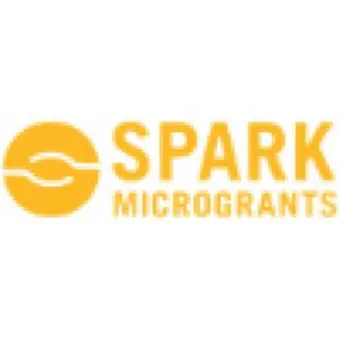ABOUT SPARK MICROGRANTS
Spark Microgrants believes in a world where everyone lives with dignity and determines their own positive future. Decades of prescriptive aid have sidelined the poor from the very programs meant to uplift them. We believe in local solutions and catalyzing rural villages facing poverty into action.
At the heart of Spark’s model, the Facilitated Collective Action Process (FCAP), are ‘town-hall’ style weekly meetings, in which women, men, young, old, plan together for their community’s future. Each village elects a leadership committee, establishes a village savings account, and launches a project of their choice. Members receive training on financial management, transparency, leadership, village planning, and advocacy.
Spark trains partner organizations and works with governments to scale the FCAP as the model of choice to advance social and economic development, improve lives, and secure lasting change. Spark is now active in 500+ villages in 6 countries, improving the lives of over 500,000 people.
In Malawi, Spark is partnering with Foundation for Community & Capacity Development (FOCCAD) and Shaping Our Future Foundation (SOFF) to pilot the FCAP in communities in Nkhotakota and Lilongwe with the vision of scaling to communities in other areas in the near future
As a team, we share a set of common values that shape how we work. These are:
- Facilitators. We don’t impose; we enable others to generate impact.
- Community-driven. We are motivated by what is best for the community.
- Process-centered. The how of what we do is just as important as the what.
- Authentic. Our vision and values live in everything we do.
- Dynamic. We seek opportunities and are willing to take risks to serve our community partners better
ABOUT THE ROLE
Reporting to the M&E Officer, the research assistants will be expected to collect high quality qualitative data from the target respondents within Lilongwe and Nkhotakhota District to help Spark learn from the communities that have been implementing its model (FCAP).
RESPONSIBILITIES
- Participate in the training ahead of the data collection exercise.
- Facilitate Focus Group Discussions of project beneficiaries in Lilongwe and Nkhotakhota District to be able to collect qualitative information on the subjects of interest.
- Conduct Key Informant Interviews with selected respondents and document responses in a way that is easier to transcribe.
- Translating and Transcribing responses from the Focus Group Discussions and Key Informant Interviews into MS-word documents ready for analysis.
WHO WE ARE LOOKING FOR:
Essential:
- A bachelor’s degree in any field
- Strong qualitative data collection skills
- Previous experience in conducting qualitative data collection through focus group discussion and key informant interviews.
- Ability to communicate effectively in English, both written and spoken
- Ability to community effectively in Kichewa (spoken)
- Ability to communicate in a highly professional manner with a variety of audiences
- High level of attention to detail
- Ability to travel and previous experience working in remote areas.
OTHER INFORMATION:
- Location will be Lilongwe and Nkotakota .
- Application will be on a rolling basis.
Safeguarding
Our safeguarding follows a do no harm principle. All Spark staff are expected to respect and uphold the safeguarding procedures and principles to minimise harm to stakeholders, program participants, and the environment, in compliance with the World Bank Environmental and Social Framework and Rwandan Legislation.
Equal Opportunity
Spark Microgrants provides equal employment and advancement opportunities to all individuals. Employment decisions at Spark are based on merit, qualifications, and abilities. Spark does not discriminate in employment opportunities or practices on the basis of race, color, religion, sex, sexual orientation, national origin, gender identity, age, disability, marital status, or any other characteristic protected by the law. Spark will make reasonable accommodations for qualified individuals with known disabilities unless doing so would result in undue hardship to daily operations.



